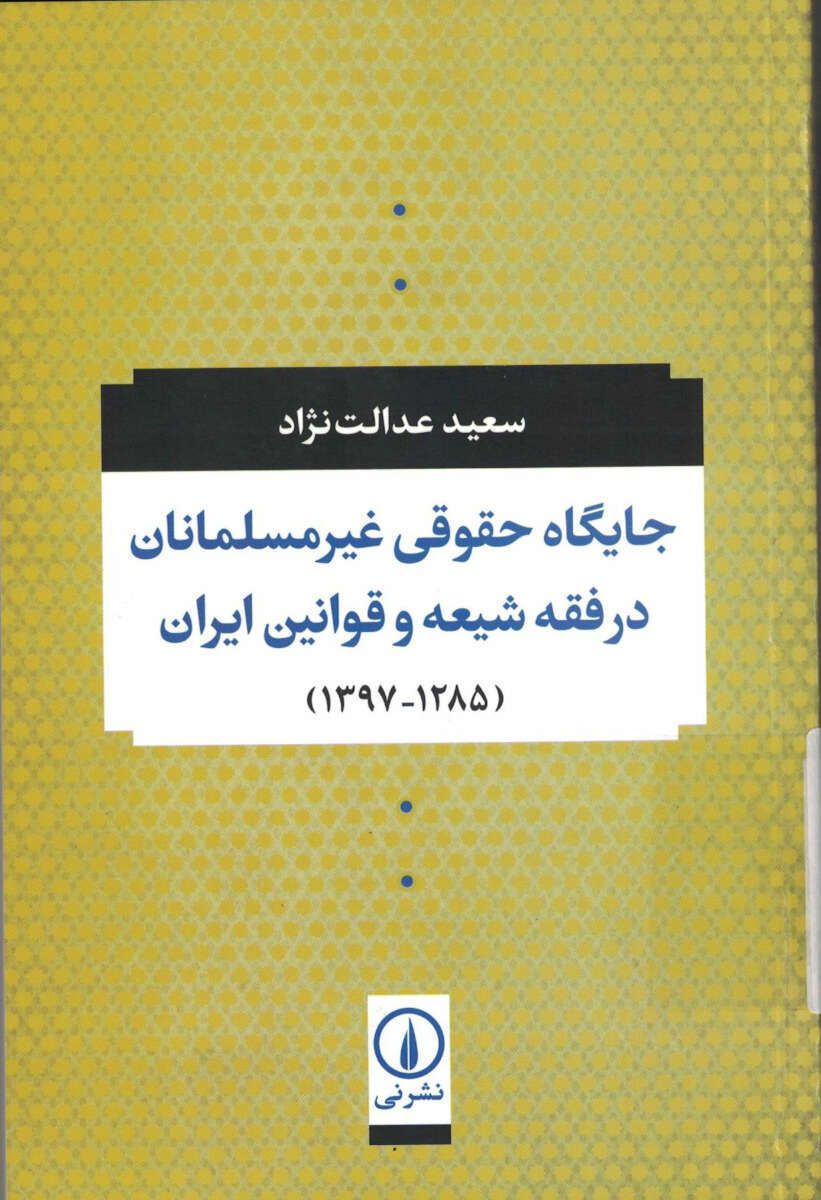Historical Legacy and Today’s Challenges: A Look at the Rights of Non-Muslims in Iran
Introduction
In Iran, with a diverse population of religions and sects, the issue of the rights of non-Muslims has always been of particular importance. The historical roots of this issue go back to the depths of Islamic jurisprudence and Iranian laws. In this report, we will examine the legal status of non-Muslims in Iran, relying on the valuable book “The Legal Status of Non-Muslims in Shi’i Jurisprudence and Iranian Laws” by Sa’id Adalat Nejad.
Main Body
Historical Legacy
A look at the historical roots of jurisprudential rulings regarding non-Muslims in Shi’i jurisprudence and its impact on Iranian laws.
An examination of concepts such as jizyah, dhimma, and martyrdom and their status in past and present laws.
Interview with a teacher of Islamic history: “The jurisprudential rulings on non-Muslims have undergone many changes throughout history. Unfortunately, many of these rulings still overshadow current laws.”
Current situation
A review of Iran’s current laws on religious minorities and a comparison with international human rights law.
Interview with a human rights activist: “Although steps have been taken in recent years to improve the rights of minorities, there is still discrimination against them.”
A review of the challenges facing religious minorities in Iran, such as restrictions on the construction of religious places, teaching their native language, etc.
Comparison with other Islamic countries
A brief comparison of the legal status of religious minorities in Iran with countries such as Turkey, Indonesia, and Lebanon.
Interview with an international law expert: “Iran can benefit from the experiences of other Islamic countries in the field of minority rights.”
Solutions
Review of the suggestions of the book’s author and other experts to improve the situation of non-Muslim rights in Iran.
The importance of dialogue and peaceful coexistence between different religions and denominations.
The role of the government, civil society, and society in improving this situation.
Conclusion
The legal status of non-Muslims in Iran is a complex and multifaceted issue rooted in the country’s history and culture. Despite the progress made in recent years, many challenges remain in this area. To improve the rights of religious minorities, we need the full efforts of the government, civil society, and society.
Epilogue
Human rights are a universal right that is the same for all people, regardless of religion. It is hoped that one day all people in Iran will be able to enjoy equal rights and live together in peace and tranquility.

